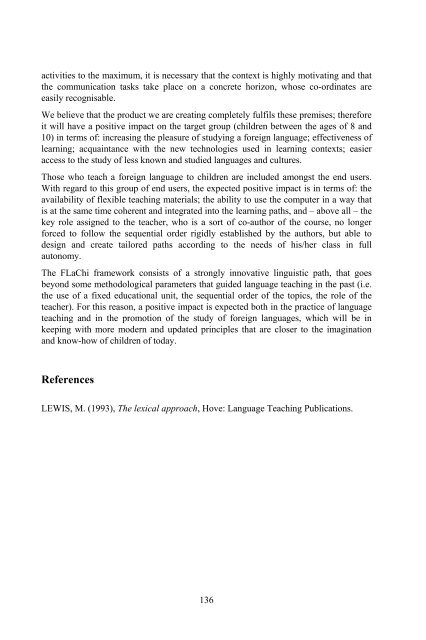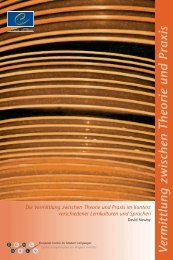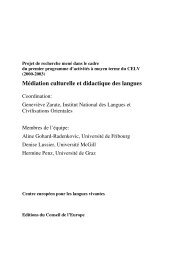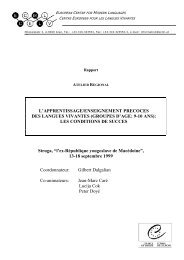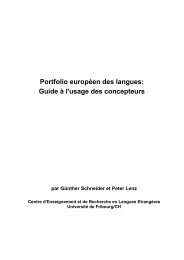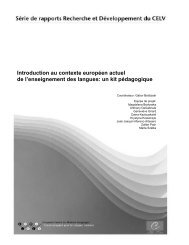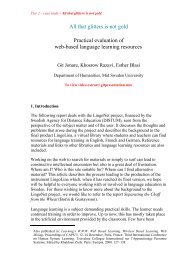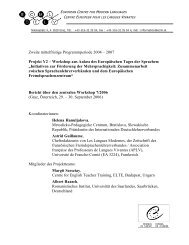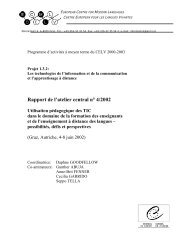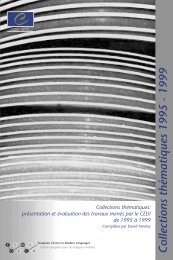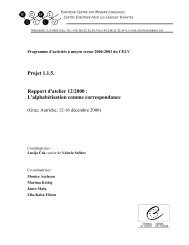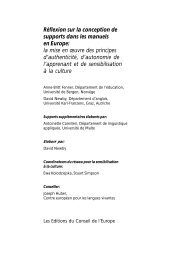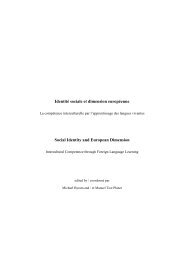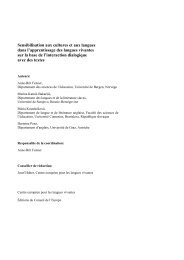cohesion - European Centre for Modern Languages
cohesion - European Centre for Modern Languages
cohesion - European Centre for Modern Languages
You also want an ePaper? Increase the reach of your titles
YUMPU automatically turns print PDFs into web optimized ePapers that Google loves.
activities to the maximum, it is necessary that the context is highly motivating and that<br />
the communication tasks take place on a concrete horizon, whose co-ordinates are<br />
easily recognisable.<br />
We believe that the product we are creating completely fulfils these premises; there<strong>for</strong>e<br />
it will have a positive impact on the target group (children between the ages of 8 and<br />
10) in terms of: increasing the pleasure of studying a <strong>for</strong>eign language; effectiveness of<br />
learning; acquaintance with the new technologies used in learning contexts; easier<br />
access to the study of less known and studied languages and cultures.<br />
Those who teach a <strong>for</strong>eign language to children are included amongst the end users.<br />
With regard to this group of end users, the expected positive impact is in terms of: the<br />
availability of flexible teaching materials; the ability to use the computer in a way that<br />
is at the same time coherent and integrated into the learning paths, and – above all – the<br />
key role assigned to the teacher, who is a sort of co-author of the course, no longer<br />
<strong>for</strong>ced to follow the sequential order rigidly established by the authors, but able to<br />
design and create tailored paths according to the needs of his/her class in full<br />
autonomy.<br />
The FLaChi framework consists of a strongly innovative linguistic path, that goes<br />
beyond some methodological parameters that guided language teaching in the past (i.e.<br />
the use of a fixed educational unit, the sequential order of the topics, the role of the<br />
teacher). For this reason, a positive impact is expected both in the practice of language<br />
teaching and in the promotion of the study of <strong>for</strong>eign languages, which will be in<br />
keeping with more modern and updated principles that are closer to the imagination<br />
and know-how of children of today.<br />
References<br />
LEWIS, M. (1993), The lexical approach, Hove: Language Teaching Publications.<br />
136


